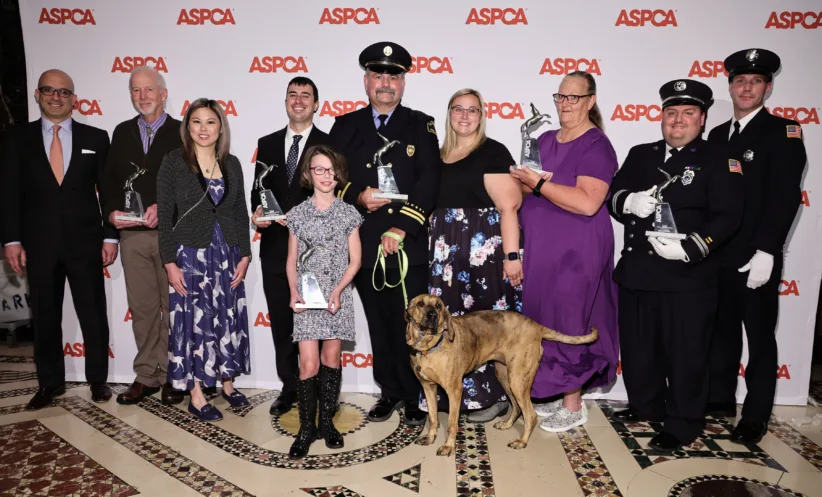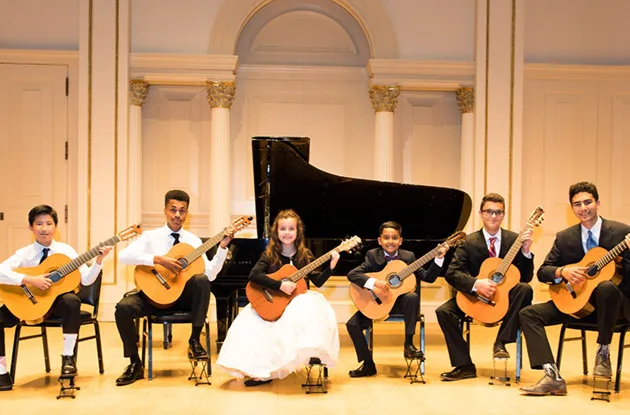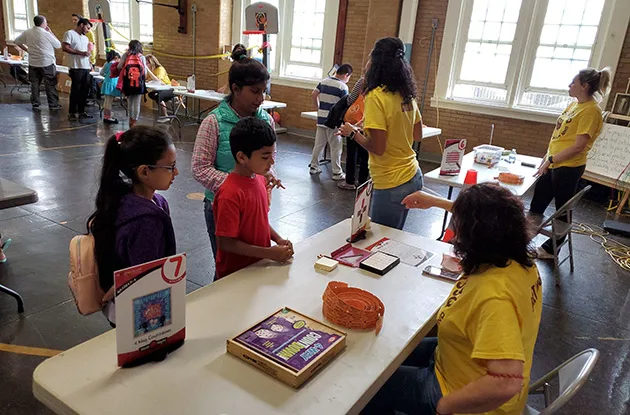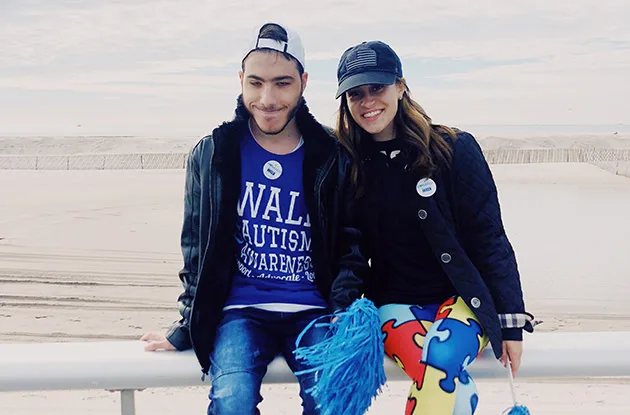Seven Long Island women created L.E.A.D., Live Empowered And Dance, to mentor at-risk girls in the neighborhood.
It’s Monday after school, and 10 fourth- through eighth-grade girls are attempting to do their homework. Likely their loud laughter and gentle teasing is unrelated to the textbooks in their laps. When they’re asked to warm up for their dance lesson, they enthusiastically stretch, palms to the floor, at the direction of their mentor Dena Maldon. But one of the girls is struggling and asks to sit down. Another mentor, Michele King-Elder, soon discovers the girl hasn’t eaten all day: a classmate stole her lunch money.
The scene is a common one for this group, L.E.A.D., or Live Empowered And Dance, a mentor/dance program for at-risk girls designed and implemented by seven women earlier this year in response to violence in their Huntington community. They meet weekly at the Tri Community & Youth Agency in Huntington Station to keep the girls focused on positive, self-esteem-building activities.
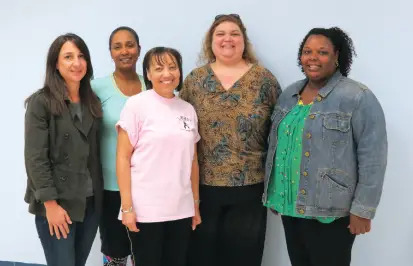 L.E.A.D. mentors (left to right) Cathy Ribando, Dena Maldon, Michele King-Elder, Rachelle Chambers, and Sheila Flythe. Liza N. Burby L.E.A.D. mentors (left to right) Cathy Ribando, Dena Maldon, Michele King-Elder, Rachelle Chambers, and Sheila Flythe. Liza N. Burby |
Sheila Flythe, president of the organization, says the mentors, who range in age from 33-50, are graduates of the Parent Leadership Initiative of the Child Care Council of Suffolk in Commack. The program trains participants to be leaders in their communities.
“After we finished the program, we all wanted to give back,” says Flythe, a Huntington resident and mother of 10-year-old twins. “There were increasing cases in our community of gang violence at the time, and we were all concerned. In one of our sessions, we learned that there would be fewer gang members if girls didn’t date them, since so much violence is about fighting over the girls. So we came up with the idea of a mentoring program for girls. And one thing girls love to do is dance. It’s a way for them to express themselves, to feel comfortable, to talk about things when they don’t know how. They can express anger and frustration through their moves.”
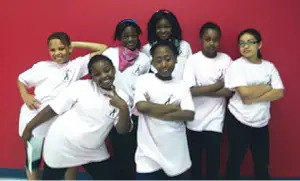 Members of Live Empowered and Dance, a pilot program for at-risk girls in Huntington |
The girls learn ballet, Irish step, hip-hop, and modern. After the dance sessions, the mentors have a round-table discussion with them about topics like sexual harassment, bullying, death, and hygiene. Guest speakers come in as well.
“The girls really open up after their 45 minutes of dance,” Flythe says. “Sometimes it’s startling to hear what they’ve already experienced and what they know about at such a young age, like how boys talk to them. We help them identify that as sexual harassment. We need to reach them at a young age, because if we don’t, someone on the streets will.”
In one particularly meaningful session about bullying, one of the girls revealed that her sister had stopped going to school because she was being bullied. Flythe says the group was able to help the siblings.
Another mentor, Cathy Ribando of Huntington, who has 9- and 11-year-old sons, says that the consistency of the program is good for the girls. “Our biggest triumph was after summer hiatus when the girls were all so excited to see us again in September. It’s not easy for them to get to the meetings since they don’t all live near the Tri-CYA, but they love being there.”
Each of the mentors feels they’re getting just as much back. “It broadened my horizons,” Ribando says. “My boys go to the same school, yet their experience is drastically different. I want them to be aware that not everyone has all that they do and that we have to work together regardless of our situations at home.”
“This is my passion,” Flythe adds. “I see a lot of myself when I was growing up in these kids. They’ve all been displaced in some way. We think that kids need electronics and name-brand clothes. But what these kids need most is love and attention. Some of these girls go to school with my kids, and when they see me they run up to me and give me a hug. I feel good that I am giving my time to them, and they walk away with something, that I can give them unlimited attention.”
The pilot session of L.E.A.D. ends in December and a new one starts in January. Flythe says the women would like to incorporate other forms of art to broaden the girls’ experiences, as well as expand the program to other school districts. They would also welcome more mentors so that more girls can enjoy expressing themselves through dance.
To learn more, contact Flythe at 516-702-6171.


















